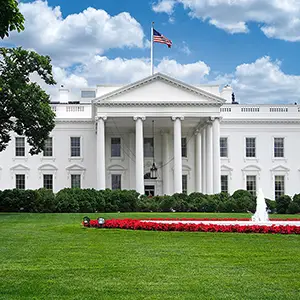The One Big Beautiful Bill Enhances HSAs and FSAs
HR1, commonly referred to as the One Big Beautiful Bill (OBBB), recently passed Congress and was signed into law on July 4, 2025. While much of the coverage has focused on its tax provisions, the OBBB’s changes include improvements to Health Savings Accounts (HSAs), permanent extension of the telehealth relief for high-deductible plans (HDHPs) and an increase in the annual contribution limit for dependent care Flexible Spending Accounts (FSAs). For your convenience, we outline them below.
Dependent Care Flexible Spending Accounts
The dependent care FSA limit has been increased. For plan years starting on or after January 1, 2026, the new dependent care FSA limit will increase to $7,500.00/year (or $3,750.00 for married couples who file taxes separately). Unfortunately, this new limit is not indexed for inflation.

Health Savings Accounts
The legislation calls for long-awaited expanded eligibility for HSAs including:
Favorable Treatment for Coverage Under Direct Primary Care Service Arrangements (DPCSA)
This provision would permit HSA-eligible individuals enrolled in DPCSAs to make or receive HSA contributions and allow individuals to use HSA funds to pay for certain DPCSA services. A DPSCA is medical care by primary care practitioners in exchange for a fixed periodic fee of no more than $150.00 per month, per employee ($300.00 if multiple individuals are covered). Additionally, fees paid under a DPCSA are treated as medical expenses and thus exempt for the prohibition that HSAs cannot pay for insurance.
ACA Eligibility Expansion
For those shopping for plans on the ACA Marketplace, this provision requires that HSAs will treat bronze and catastrophic plans as high-deductible health plans. As HDHPs, participants in such plans now qualify for HSA plans.
Permanent Relief for Telehealth Services Covered by HSA
Retroactively restores to January 1, 2025, and permanently allows a.) HSA-qualifying HDHPs to cover telehealth services on a pre- or no-deductible basis and b.) an otherwise HSA-eligible individual to receive pre- or no-deductible coverage for telehealth services from a vendor outside of the HDHP. In both instances, the pre- or no-deductible telehealth coverage won’t interfere with an individual’s eligibility to make or receive HSA contributions.
All provisions go into effect on January 1, 2026
Employers Should Take the Following Steps
Enhance compliance systems
Update your systems and prepare to support new health benefit requirements.
